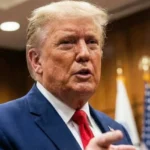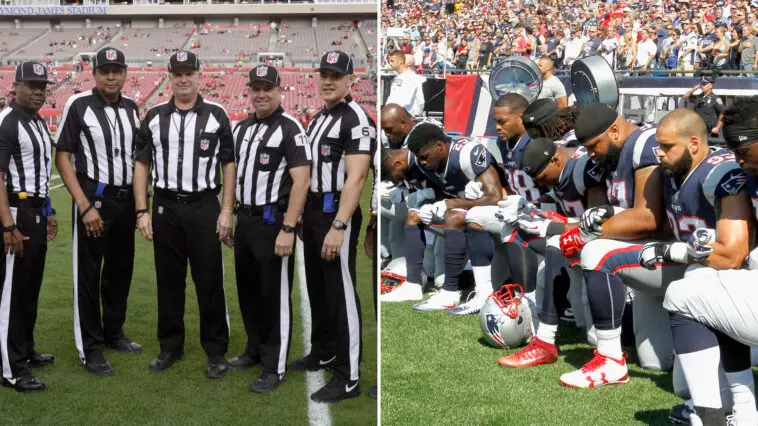In an unprecedented move that has sent shockwaves through the National Football League (NFL) and its global fanbase, referees disqualified ten players last week due to their decision to kneel during the national anthem. This significant number of disqualifications in a single week has stirred a new chapter in the ongoing debate about free speech, patriotism, and social activism within the sports arena.
The disqualifications occurred across various games, signaling a seemingly coordinated response from the league’s officials to the kneeling gesture, which players use to protest racial injustice and police brutality in the United States. The move has been perceived differently by various sections of the NFL community, igniting a heated debate on both social media and in sports commentaries.
Traditionally, NFL referees’ responsibilities revolve around ensuring the game’s rules are adhered to on the field. The decision to disqualify players for a non-gameplay-related action like kneeling raises questions about the referees’ role and the extent of their authority in political expressions during games.
Critics argue that this decision oversteps the intended purpose of a referee’s duties, blurring the lines between maintaining sportsmanship on the field and policing personal expression. Supporters of the move, however, praise it as an upholding of respect for national symbols and a reinforcement of the sport’s discipline.
The act of kneeling during the anthem was popularized by former NFL quarterback Colin Kaepernick in 2016 as a peaceful protest against racial inequality and police brutality. While Kaepernick’s actions received both support and backlash, it undoubtedly sparked a nationwide conversation about activism in sports.
This recent mass disqualification can be seen as a drastic pivot from the previous seasons, where players’ rights to protest seemed to be more implicitly acknowledged by the league and its officials.
The NFL has had a turbulent history with the issue of players kneeling during the anthem. Initial attempts to mandate standing during the anthem were met with criticisms and accusations of violating players’ rights to free speech. The league’s shifting policies and unclear stance have often left players, fans, and even officials in a gray area regarding expectations and consequences.
The affected players, backed by the NFL Players Association (NFLPA), have expressed outrage and disappointment at the disqualifications. Many of them took to social media to voice their concerns, emphasizing that their protest was not against the nation or its symbols, but rather a plea for social justice and equality.
The reaction from the fans and the public has been equally polarized, with some calling for a boycott of the NFL until it adopts a clear, fair policy on the issue. Others applaud the league’s tough stance, viewing it as a restoration of respect for the anthem and the flag.
This development marks a pivotal moment for the NFL. It not only challenges the boundaries of sports as a platform for social commentary but also puts the league’s policies and their implementation under scrutiny. As discussions and debates continue, the NFL is at a crossroads, needing to balance its policies with respect to players’ rights, public sentiments, and the spirit of the game.
With talks of further protests, league meetings, and potential legal challenges, the issue is far from resolved. The NFL, its players, and its millions of fans worldwide await a resolution that respects both the sanctity of the game and the voices calling for social justice within and beyond the stadium walls.
Label:Satire





